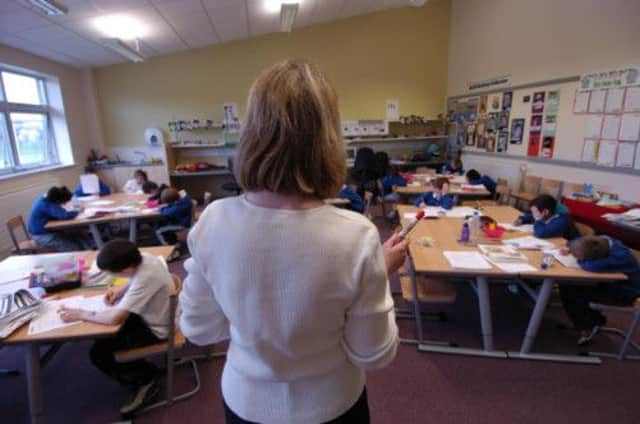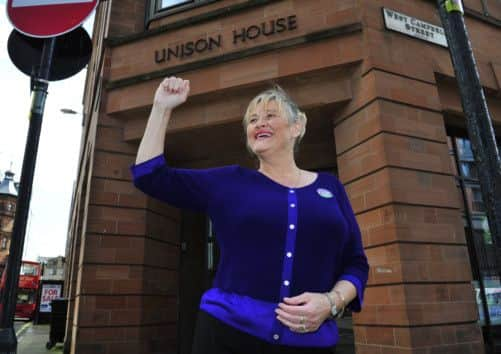Scottish school staff win landmark equal pay claim


Public sector union Unison said more than 2,000 women will now launch claims in pursuit of several years’ worth of bonuses.
For 251 women in Dumfries and Galloway who brought the test case against their local authority, it is a successful end to a seven-year battle.
Advertisement
Hide AdAdvertisement
Hide AdTheir case has been contested at an employment tribunal, a tribunal appeal and at the Court of Session in Edinburgh before going to the UK’s highest court.


Elaine North, 51, a learning assistant working with children with additional needs, who was among those bringing the case, said: “This decision means equality for women, equal pay, getting what we deserve and what we’re entitled to. We’ve been fighting for this for seven years.”
She added: “We were watching it [the Supreme Court video link] live in the Unison office.
“The verdict kind of came halfway through and I’m thinking: did I hear that right?
“It was absolutely fantastic. Equal pay came in the 1970s – it’s 2013 and we’re still having to fight for it. This is another step forward for women of my generation, and for my granddaughters as well.”
The Supreme Court did not say that the women were entitled to compensation, or how much, but clarified a point of law and referred the case back to the employment tribunal to deliver a decision.
What the court did establish is that a man and a woman, doing work of equal value and for the same employer, are entitled to the same terms and conditions, even when working in different establishments.
The women, including classroom assistants, learning assistants and nursery nurses, argued they had been denied bonuses routinely given to workers in jobs predominantly done by men, such as groundsmen, refuse collectors, drivers and leisure attendants.
Advertisement
Hide AdAdvertisement
Hide AdUnison said 20 other councils had joined Dumfries and Galloway in arguing their case at the Supreme Court.
Dumfries and Galloway admitted the ruling would have implications for the whole of Scotland.
“The appellants, including classroom assistants and nursery nurses, now have won the right to have their jobs compared to those of male manual workers, such as road workers and groundsmen,” a council spokesman said. “This judgment has implications for local authorities and other public bodies.
“Our council will consider its position in response to the Supreme Court judgment.”
Dave Prentis, general-secretary of Unison, said: “I am delighted that the Supreme Court has ruled in favour of our women members. It is a shame, though, that they have had to go through this process and endure a seven-year wait just to get equal pay.
“Dumfries and Galloway Council should take immediate steps to correct their pay and I urge other councils to follow suit. We have nearly 2,000 cases on hold, waiting for this judgment.”
Tony Hadden: Ruling could lead to private sector change
THIS ruling goes way beyond the classroom – it applies to every employee in the land, private sector as well as public.
The reason why so many equal pay claims have happened in the public sector is because, to even start to compare your pay with someone working in a different department and a different place, there need to be common terms and conditions.
Advertisement
Hide AdAdvertisement
Hide AdIf you are a woman and want to compare yourself with a man, you have to say, “If my job existed in that park, or that depot, I would be working under those terms and conditions and I would be paid ‘x’.” In the public sector there are so many rules and pay bands that this is possible to do.
It’s harder to see how it would apply to many private sector employees because pay is often more discretionary so you can’t compare yourself as easily.
However, there is still some way to go in the Dumfries and Galloway case.
The nub of the whole problem with equal pay is what is termed equal value, as in the value of your job when compared to another job. Jobs of equal value generally should be paid at the same rate. The issue that has been decided at the Supreme Court precedes the question of whether the jobs involved are of equal value or not.
However, this victory does mean the women have the right to ask a tribunal if their job is of equal value, which involves assessing what is involved in their job. This includes things like level of responsibility, whether the work is manual, involves heavy lifting, is stressful, requires handling money, etc.
The problem for the court/tribunal system is that this process takes a really long time and can therefore be very expensive and time-consuming. In this case we still do not know if one of the classroom assistants is doing work of equal value to a groundsman, for example.
• Tony Hadden is a partner and employment lawyer at Brodies